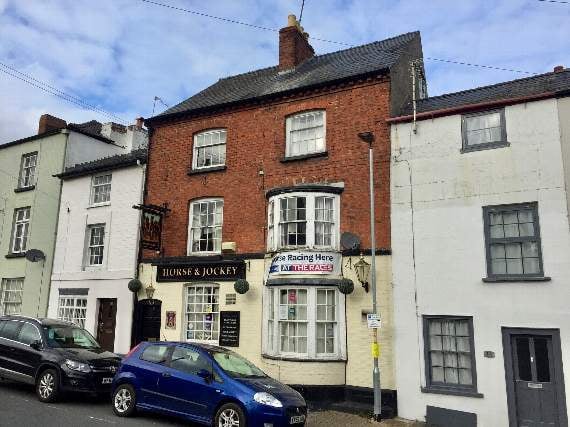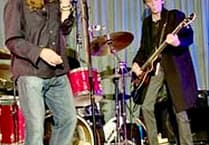CAMPAIGNERS have failed to stop the owner of a closed Grade II-listed town centre pub winning permission to turn it into two houses.
The Campaign for Real Ale opposed the plan to convert The Horse & Jockey in Ross-on-Wye back to housing after almost 200 years trading as a pub, which planners ruled last week can be converted.
But more than 50 neighbours who signed a petition backing the homes scheme are happy to see the pub go, saying loud noise and rowdy behaviour in the mainly residential street, often late at night, had made their lives a misery.
Complaints led licensing authorities to cut the pub’s opening hours before its final closure in 2018, and West Mercia Police said problems of “nuisance and disorder” would “no doubt resurface” there if it reopened “regardless of who manages it”.
But Herefordshire CAMRA told county planners the historic ‘traditional’ pub was “not sufficiently marketed” before being sold by a pub chain to a developer, and realistic offers for the premises based on its “poor physical condition” were dismissed.
They claimed: “No evidence has been provided by the applicant to support the assertion… that the pub is financially unviable and that there is no demand for it…
“Moreover, there is absolutely no mention of any effort made to market the pub as a going concern, or of any offers received and declined, or reductions in price.”
A CAMRA report said: “The pub’s permanent loss will mean a net loss of social amenity to the residents of Ross and to visitors. Specifically, those locals who relied on the pub will be most effected.
“The Horse & Jockey offers a very traditional pub atmosphere, unlike some of the other pubs in Ross. Moreover, it was considered to be of sufficient value that it is listed as an Asset of Community Value.”
CAMRA said a local businessman had put together a detailed plan to restore the “severely dilapidated” pub to its former glories, with a view to buying it, but his ‘generous’ offer given its condition had been dismissed.
The group claimed: “The asking price for the Horse & Jockey was grossly out of kilter with the prevailing market conditions for licensed premises in Herefordshire… CAMRA believes this property was only ever marketed for sale as a development opportunity. It was not priced for sale as a pub.”
The report added: “The Horse & Jockey has been a pub serving the the town of Ross for at least 200 years.
“CAMRA is not aware of the pub having previously ceased trading over this considerable duration for any extended period of time.”
“As a pub it has a high communal value as a place for social, public and commercial life in the town of Ross. This in itself is a part of the special historic interest of the Horse & Jockey as a listed building.”
But pub neighbour Liz Price told planners: “During the latter few years of it being run as a pub, we have witnessed the residents living on the opposite side of the street having to endure some anti-social behaviour, and the whole street enduring plenty of noise, shouting and even fighting at night.”
And Lisa Shekede said they “had experienced every kind of disturbance imaginable” and the homes plan would prevent the “beautiful listed building” from becoming even more derelict.
Herefordshire planners approved the change of use and gave listed building consent, saying the pub had been properly marketed for 18 months as a going concern, and had received only one offer below the asking price, while it was no longer listed as an asset of community value.
They added: “The existing use is no longer viable in this location… Furthermore there are alternative facilities locally that will continue to provide for the social needs of the local community.”
A report on behalf of applicant Robert Macey of Peri Estates in Manchester said the building was originally two separate houses before becoming a pub by at least 1821.
The building won’t entirely lose its historical connections, with the new homes being named after a jockey and a horse who raced at the town’s long-gone racetrack on Moor Meadow at Weir End, which ran from 1836 to 1922.
Hastings House will commemorate a major patron of the races, the Honourable Aubrey Craven Theophilus Robin Hood Hastings, a famous jockey and trainer of the time who trained at least five Grand National winners, while Merry Monk House will commemorate the top horse at the 1836 meeting.




